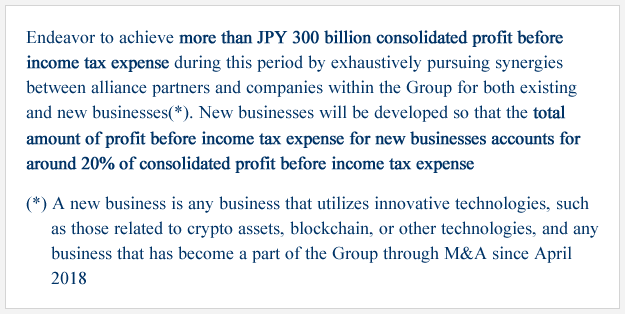
It is important to understand what you should look for when hiring a Python programmer. Be persistent and aggressive in your search. Find Python developers using online platforms and forums. Examine the competitive landscape to see which companies are hiring programmers.
Questions to ask a programmer in python
If you are considering hiring a Python programmer, you'll want to make sure they understand the syntax. It's also important to learn about their Python experience. While you may not need someone who's exclusively used Python, it's good to know that you can hire someone who has worked with the language for many years. Talk to them about Python's strengths and drawbacks, as well as what makes it the best choice for your projects. It's also important to match the candidate's style to yours.
Remember that interview questions for Python will not only test your technical knowledge but also your personality. The most common interview queries are general to ease you into this process. If you have a solid command of the language, it's a good idea for interview questions about your projects and personal experiences.

Questions to ask any python company
The first question you need to ask the company you're considering is how they're familiar with Python. The language has several advantages over other languages, including dynamic semantics, code prototype, and a comprehensive library. It works with many platforms. It is important to be able to answer this question correctly in an interview.
It is important that the developer can explain how Python works. It supports many different types of programs, including enterprise development, mobile applications, graphic design, and computational applications. It can also be used with GUI-based Operating Systems. Moreover, he should be able to explain his development process in detail, as hiring managers pay attention to details.
Python is a high level scripting language. It uses English keywords often, is interactive, and is object-oriented. It is free to use, and is widely available on many platforms. It is supported by libraries and a large open-source community. Moreover, the language is interpreted, which means that the interpreter runs the code and produces variables.
Finding the right python programmer
When you are hiring a Python programmer for your company, make sure to clearly outline the skills and experience needed. Avoid using the "soft skills", and make sure you include any preferences about work arrangements. It's important that you know if your programmers can work in small or large teams.

There are two main methods to find a Python developer for your project. One is through an in-house method and one is via a freelance method. In-house programmer have their own office and are integrated into project teams. In-house developers typically receive a regular salary and are contracted for long-term work. However, freelance Python developers can be hired individually and are not part the ecosystem.
Strong problem solving skills are essential for a Python programmer. He or she should be able to identify defects and weaknesses in existing code. Also, you should consider how well the programmers communicate with their colleagues. These skills are especially crucial if the developer will be working with a team. There are many companies competing for top talent, so there is a lot of competition.
FAQ
How is consulting different to freelancing
Freelancers are individuals who work for themselves and offer their services to clients. They charge hourly rates depending on the amount of time spent on a client's projects. Consultants work for companies and agencies that employ them. Their salaries are usually paid monthly or annually.
Consultants have less flexibility than freelancers because they can control their work hours, and set their own prices. But consultants have more benefits like vacation days, health insurance and retirement plans.
Which industries use consultants
There are many types. Some consultants are focused on a specific type of business, others may specialize in multiple areas.
While some consultants only work for private companies, others represent large corporations.
Some consultants also work internationally and can help companies around the globe.
What are the advantages of being a consultant?
As a consultant, you can usually choose when you work and what you work on.
This means that you can work when you want and wherever you want.
You can also easily change your mind, without worrying about losing any money.
Finally, you can control your income and set your own schedule.
How do I attract clients to my consultancy business
Finding a passion area is the first step. This could be social media or public relations. However, it must be something that you are passionate about. If not, you may have to start small by finding a niche market such as web design. Once you've found this niche, make sure you understand what makes it tick. What problems does it solve What are the benefits? But most importantly, what can you do to help them?
It is also possible to approach businesses directly.
If all else fails you can offer your services at free events such as conferences or networking nights. You will meet potential customers and be able show your skills without having to spend money advertising.
What does it mean to be a consultant?
Consultants provide services for others. It's not a job title. A consultant is a role that helps others achieve their goals. Helping others to understand their options, and then helping them make the best decisions.
Consultants are experts in finding solutions to the problems and challenges that arise while working on projects. They offer guidance and advice about how to implement such solutions.
Consulting should be able answer any questions related to technology, finance, law and management.
What types of contracts exist for consultants?
Most consultants sign standard employment deals when they're hired. These agreements specify how long the consultant will be working for the client and what he/she will be paid.
Contracts specify the area of expertise that the consultant will specialize in and the amount they will be paid. A contract may state that the consultant will deliver training sessions or workshops, webinars, seminars and other services.
Sometimes, the consultant agrees to do certain tasks within a given time frame.
Many consultants also sign independent contractor agreement in addition and standard employment agreements. These agreements allow the consultant not only to work for himself/herself but also provide payment.
Statistics
- According to statistics from the ONS, the UK has around 300,000 consultants, of which around 63,000 professionals work as management consultants. (consultancy.uk)
- Over 62% of consultants were dissatisfied with their former jobs before starting their consulting business. (consultingsuccess.com)
- On average, your program increases the sales team's performance by 33%. (consultingsuccess.com)
- 67% of consultants start their consulting businesses after quitting their jobs, while 33% start while they're still at their jobs. (consultingsuccess.com)
- Over 50% of consultants get their first consulting client through a referral from their network. (consultingsuccess.com)
External Links
How To
How do I start a consultancy company?
Start a Consulting Company to make some extra money from home. It doesn't require any prior business experience nor capital. To start your own consulting business, you can build a site. To promote your services, you will need to create a website.
These tools allow you to make a marketing program that includes the following:
-
Create content (blogs).
-
Building relationships (contacts)
-
Generating leads through lead generation forms
-
Selling products through ecommerce websites
After you have developed your marketing strategy, it's time to find clients willing to pay for your services. Some prefer to meet up at networking events or go to meetings, while others prefer to use online platforms like Craigslist, Kijiji, and others. The choice is up to you.
Once you have found clients, you should discuss terms and payment options. These could be hourly fees, retainer arrangements, flat-fee contracts, or other types of fees. It is important to clearly communicate with clients before you accept them as clients.
An hourly agreement is the most common contract for a consulting service. You agree to offer certain services at a fixed fee each month or every week. You may be able negotiate discounts depending on what service you offer. Before you sign a contract, ensure you understand everything.
Next, create invoices for your clients and send them. Invoicing is one those things that seem so simple until you actually do it. There are many ways to invoice clients. It all depends on your preference. For example, some people prefer to have their invoices emailed directly to their clients, while others print hard copies and mail them. No matter what you do, make sure it works!
After you've finished creating invoices, you'll want to collect payments. PayPal is the most popular payment option because it's easy to use and provides multiple payment options. There are many other payment options, such as Square Cash, Square Cash and Google Wallet.
Once you're ready to begin collecting payments, you'll want to set up bank accounts. Having separate checking and savings accounts allows you to track income and expenses separately. You can also set up automatic bank transfers to pay bills.
While starting a consultancy company may seem daunting, once you master the basics, it becomes easy to manage. For more information on starting a consultancy business, check out our blog post here.
Starting a consulting firm is a great way to earn extra cash without worrying about employees. Many consultants work remotely. This means that they don’t have to deal in office politics or work long hours. Because you don't have to work a set number of hours per week, you can be more flexible than a traditional employee.